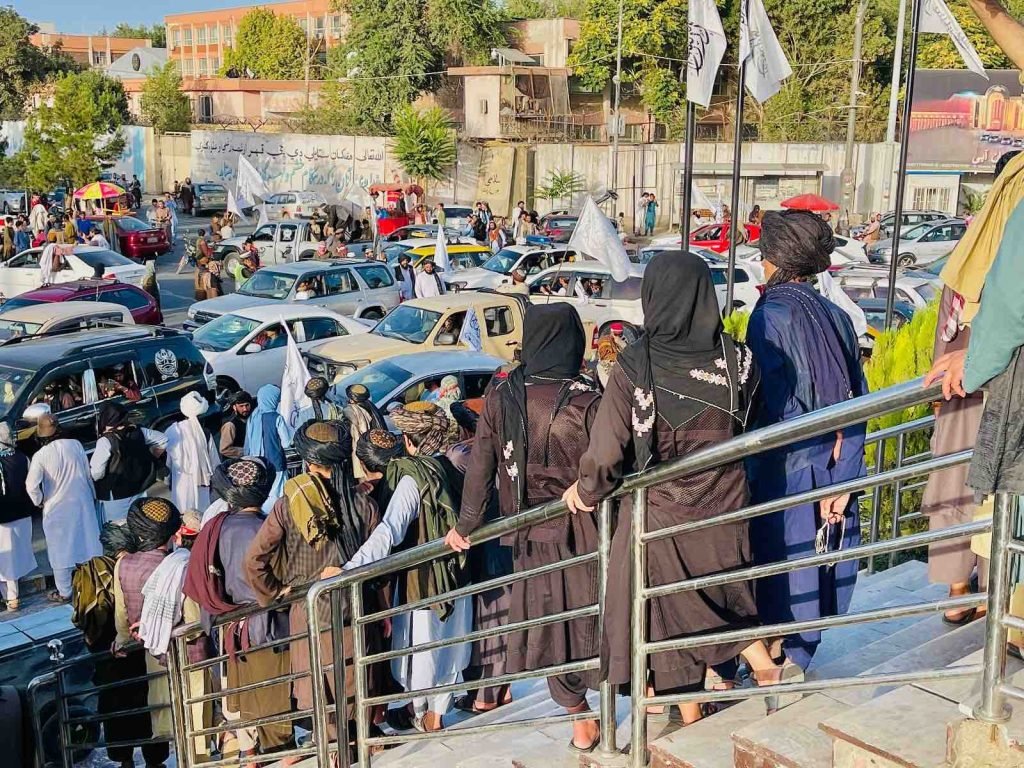Taliban-Led Afghanistan: Neighbors Wary of Security Challenges

Taliban-led Afghanistan, August 2023. Photo: @AADIL
By Ilhamuddin Afghan
Following the Taliban’s resurgence in Afghanistan and in the wake of recent attacks, the country’s neighboring nations are facing unexpected challenges.
The withdrawal of US-led NATO forces in 2021 initially raised hopes for stable relations under the new Taliban-led government. But recent developments have diverged from these expectations, leaving Afghanistan’s neighbors wary and concerned.
While the Taliban crackdowns have weakened the opposing militants and prompted some members to leave Afghanistan, the presence of groups like the Islamic State of Khurasan Province (ISKP) in northern provinces such as Badakhshan and Balkh has raised security concerns for Afghanistan’s northern neighbors.
“We will not use Afghanistan soil against any of our neighbors or any other countries in the world,” Maulvi Abdul Kabir, the Taliban political deputy leader said during a ceremony in Kabul recently.
A former Afghan army general who declined to be named said the neighbors concerns about terrorism threats emanating from Afghanistan were valid.
“The concerns raised by neighboring countries about terrorist groups in Afghanistan are valid. I don’t understand why the Taliban and Afghans conceal this issue,” he said.
The United States intelligence on Friday reportedly confirmed that Islamic State’s (ISIS) Afghanistan-based branch carried out twin bombings in Iran that killed nearly 100 people.
ISIS on Thursday claimed responsibility for the bombings, saying two operatives wearing explosive suicide belts staged the attack during a memorial service for Qassem Soleimani, a senior military commander assassinated in Iraq in a 2020 US drone strike.
IS Focus on Plotting Foreign Operations
Russia, initially optimistic, has expressed unease in meetings with the Taliban, particularly emphasizing its desire to prevent insecurity from spreading to its borders.
An ISKP attack on the Russian embassy in Kabul in 2022 that left at least two employees of the diplomatic mission dead heightened anxiety about the evolving security situation.
Russia remains skeptical of international initiatives and UN involvement in Afghanistan, abstaining from supporting the appointment of a new UN envoy.
The Russian deputy representative for political affairs at the UN, Anna Evstigneeva, emphasizes the need for consistent dialogue with de facto authorities and a departure from manipulative rhetoric by Western donors.
“We are convinced that the Afghan issue can move from an impasse only if there is consistent and patient dialogue with the de facto authorities and if certain Western donors abandon their usual rhetoric and stop manipulating with humanitarian aid,” she said recently.
Tajikistan a former Soviet State and Afghanistan’s northern neighbor, has established additional checkpoints along the Afghan border in response to security concerns. These measures aim to protect against potential threats, including those posed by ISKP and other terrorist groups.
Central Asian countries are worried about the Taliban government’s lack of accountability and responsibility. They fear that the Taliban’s governance style could lead to extremist activities.
Pakistan, Afghanistan’s eastern neighbor, has expressed concerns about the Taliban providing safe havens to opposition militants. The Pakistan Army is alarmed by reports of the Pakistani Taliban being present in Afghanistan and having access to advanced weaponry.
Neighboring countries have consistently urged the Taliban to allow women to work and pursue education, advocating for an inclusive government in Afghanistan. At a meeting of foreign ministers in Uzbekistan, the importance of inclusivity and women’s participation was emphasized.
Afghanistan’s neighbors are struggling to balance fear and optimism despite initial hopes for improved relations. The Taliban’s takeover of a crucial neighboring country has generated doubt, challenging the initial optimism. To address security concerns and foster stability in the aftermath of significant geopolitical shifts, the region must strike a delicate balance as it grapples with uncertainties.
Ilhamuddin Afghan is a university professor based in Afghanistan.
Note: The contents of the article are of sole responsibility of the author. Afghan Diaspora Network will not be responsible for any inaccurate or incorrect statement in the articles.






